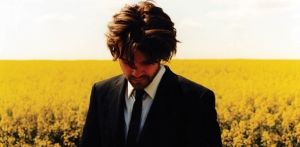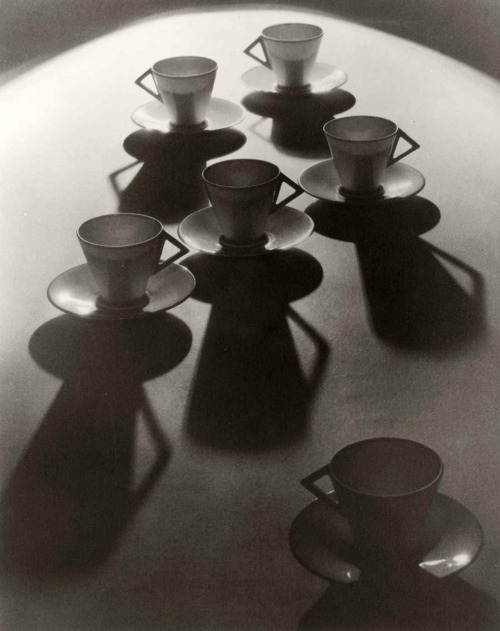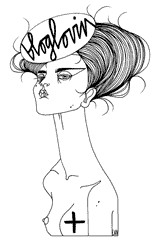Stepping away from his role as Guillemots front-man and mastermind, Fyfe Dangerfield released his stripped-down, soulful debut solo album Fly Yellow Moon. Vikki Littlemore questioned him about going it alone…..
Taking a side-step from his role as lead-singer and mastermind of The Guillemots Fyfe Dangerfield has revealed his first solo album; an exciting combination of uplifting romance, moving self-expression and over-flowing with musical finesse.
Dangerfield’s emotional investment in the album is unmistakable. ‘Barricades’ in particular, holds the same combination of vulnerability and strength so powerfully embodied by Jeff Buckley. Fyfe was inspired by Buckley years ago when listening to his classic album Grace, and is not unhappy with the comparison.
Chatting as he tackles the aisles of his local supermarket, he still managed to be hypnotically charming, interesting and markedly passionate about music, Fyfe discussed the unconscious effect of his influences, from Jeff Buckley to The Beatles, and a new, more liberating way of working.
“He was incredible, you can’t be that annoyed about being compared to someone who’s amazing. The whole record [Grace] is amazing. It’s never a conscious thing, but when you listen to something a lot, it can’t help but find a way out. I don’t really tend to make a point of referencing things, it happens naturally. This album was so much fun. We did most of it in a five-day session and it was just the best week. It felt quite liberating; nearly everything was the first take. The best moments happened quickly, when people didn’t know they were being recorded. I suppose it’s like life; you’re funniest when you’re not trying to be funny, most attractive when you’re not trying to be attractive.”
He is also eager to quash any doubts about the future of the Guillemots; “It’s not instead of doing stuff in the band at all, it’s as well as, it’s not in competition or anything like that. It’s just something I fancied doing. It’s exciting’.
I ask whether he’d be on stage alone and how he felt about flying solo, and while he is confident he is slightly apprehensive about venturing out on stage without his band mates, “It’s a bit scary, doing stuff by myself. I’m just trying to relax about it and just play music. The recording part I just love, the live part is scary. I’ll be standing on stage on my own, maybe a couple of string players, depending on how I feel.”
Work is beginning imminently on a new album with the Guillemots and his experience working on this solo project will transform the way he works with the band, going from a precise and carefully constructed sound to something more natural and organic. Discussing the creation of Fly Yellow Moon, Fyfe described the freedom and enjoyment he felt in a less pressurised process; “This record is more straightforward, more stripped down. It was quite nice to do something where you’re not so bothered about the sound; I just really like the songs. It was strangely liberating. There was no pressure to do something unique, that’s not like anything else around, spending ages on one sound. It was quite a change, totally different.”
The album is a mixed bag. While some of the songs have the emotional vulnerability and vocal poeticism of Buckley, others are joyous and celebratory and have an epic grandeur.
His voice, too, has varying qualities on each track. It often holds something of the haunting potency of Morrissey or Liam Gallagher; something indefinable in the voice which seems to reach out to the listener and take them somewhere else, sending a shiver down the spine. The voice matches the record’s diversity though, and is often much more exuberant.
When deciding on the order the tracks would appear in, he was advised not to begin with ‘When You Walk In The Room’ because of its opening, but he felt instinctively that it was right; “I’m learning as I go on that it’s important to be stubborn and when to be stubborn. Quite a few people thought that starting the record with ‘When You Walk In The Room’ was completely wrong and I was making a really bad mistake, because the first thing people hear would be me screaming when I was drunk, but I knew it was the right thing to do, and I’m really glad I stuck to my guns.”
The songs on offer are of a personal nature being written in the euphoria of a relationship, which has now ended. Everything on this record comes from Fyfe, lyrics and music; “In the band we just get into a room and play and record it. For this record, a few people have listened and made the odd suggestion, like; “that line’s shit”, that kind of thing.”
Returning to Buckley and the intimate connection with the music, I asked how Fyfe feels about sharing such personal emotions; whether it’s a reluctant or willing impartment; “It’s not reluctant. I don’t think of myself as a confessional songwriter, music is just my way of making sense of things. Music is just always what I’ve done. I tend to write things which sound quite emotional, I wish I didn’t. The music I like listening to is often instrumental, or more abrasive. I write in this style and it would be false if I tried not to be like that. It is personal but no more personal than the first Guillemots record.”
He explains the scrutiny involved in the process of finding the right people to form the Guillemots; “It just sort of happens. I always hoped and felt it would. I think I’ve worked for it, it wasn’t easy. I’m not that young, the first Guillemots record came out when I was twenty-six and I’d already spent years trying to get to that point. When I was trying to find members for the Guillemots; listening to three guitarists a day, a few times a week, I knew none of them were right. You know in your heart of hearts it’s not a final thing. You just know. I came to London to assemble the band when I was twenty-two. It’s a personal thing, playing in a band, I’m very particular. When you find the right people, you don’t need to think ‘maybe this might be right’, you just know.”
On hearing how, at twenty-two, Fyfe had moved to London and formed the Guillemots and brought the band together, I ask about his thoughts on the British music industry and found him surprisingly secluded in his creativity and not overly concerned with the business itself; “I’m not as in touch with the industry. I don’t really spend a lot of time thinking about it”.
I mention the current debate concerning programmes like The X-factor and the influx of new reality pop-stars to the industry; “‘X-factor is an entertaining programme. Since the fifties there’s always been that kind of music and market around. It’s a funny time in the industry at the moment; the internet is what really turned everything on its end. We’ve come into the industry in a period of change really; it would have been interesting to come along in 1994 in the heyday of Britpop, at a time when the industry was celebrating itself. Things were very different and no expense was spared.”
It’s clear that the music itself is Fyfe’s primary concern, rather than the politics and economics of the market. Music is something inherently deep within him, a permanent light at the end of a tunnel.
He describes how he’d heard his parents playing The Beatles and concentrated his efforts on trying to reach high enough to play the piano, when he was still too small; “I just concentrate on music; I don’t think too much about the business side of it, it’s not my department. Music is what I’m good at, it’s always been what I wanted to do, very much so. I never had another ambition. I don’t know what else I would have done, maybe worked in a bird sanctuary. I can’t remember ever wanting to do anything else.”
“There was always a piano in the house growing up; I was always trying to reach high enough to play it when I was a kid’.” I ask whether his family had encouraged him; “My family have been great, they’ve always been very supportive. It makes a big difference.”
Trying offering constructive advice for anyone wanting to follow the same path, he offers clear but tentative words; “Be honest with yourself, make sure you’re doing what you want, not trying to do stuff to be successful. You often get waylaid by business and end up chasing your tail. Discover your own style. You need to be enjoying what you do. I’m no expert but a combination of persistence and being honest with yourself. It’s easy to get caught up in being commercial. We found it in The Guillemots. It’s difficult with radio; it’s insanely difficult, crazy. When I make music, I want to make something that’s going to reach out to people, I don’t really think an awful lot about the popularity thing, like if I’m doing something melodic, I write the music I like. Unless you’re desperate to make it and be successful. If you want to get something played on Radio One, for example, there’s a definite sound at the moment. It’s just trying to do yourself justice, writing something you like. You can’t really get too caught up in it, you just think about how it sounds and whether or not you like it.”
A classical composer and former teacher, Fyfe’s deep-rooted relationship with music is simultaneously tender and expertly executed. His approach is one of passion but precision. It’s clear he carefully crafts his songs with a purpose, and says that sometimes ‘you want to make music that will really take people out of themselves’.
However, the invigorating experience of creating his solo album in a five-day almost-extemporization, has instilled him with a new feeling of liberation and his future work, individually and with The Guillemots, will be a less pressurised, more relaxed and spontaneous process. The next Guillemots album will have much less pre-construction prior to recording; the band, he says, will; ‘more or less play live, just play live and record it’, rather than the previous process of carefully constructing and labouring over every detail and minute sound.
He feels Fly Yellow Moon has the most conventional sound of anything he’s done; “It’s been the most straightforward record, in that I’ve been thinking the least on this record about what people are going to think. That wasn’t really on my mind that much at all. It’s the least thought about record, in those terms.”
Indeed, this record does feel somewhat unburdened. From the primal, drunken, cry at the beginning of ‘When You Walk In The Room’, to the delicate and naively adolescent, but beautiful, ‘Firebird’. The sincerity in Fyfe’s voice and his lyrics is complemented beautifully by the intricate acoustic guitar on the more gentle tracks, while the livelier numbers are fortifying and exuberant.
Some of the tracks, ‘High On The Tide’ in particular, capture the same dramatic energy and atmosphere, vocally and melodically, of The Smiths, Morrissey and James, but still maintain their own authenticity. ‘She Needs Me’ has a Michael Jackson beat and triumphantly happy vocals. Both in tenderness and energy, the lyrics, music and voice are effervescent.
Fyfe illustrates the depth of his passion by suggesting that he would be completely unable to divert his concentration to anything else; “I don’t drive but if I did, I couldn’t drive and listen to music, I’d just crash because I’d be listening to the music.”
He doesn’t have a strict plan for the forthcoming year but is certain it will involve music; “[I’ll be] doing a few gigs, start recording the next album with the band. A year full of music.I’m doing what I want to do. As long as I can keep playing music, I’ll be happy’.





























I love that sweater, where did u find it???????
I recently came accross your blog and have been reading along. I thought I would leave my first comment. I dont know what to say except that I have enjoyed reading. Nice blog.
Highly energetic blog, I liked that bit. Will there
be a part 2?